
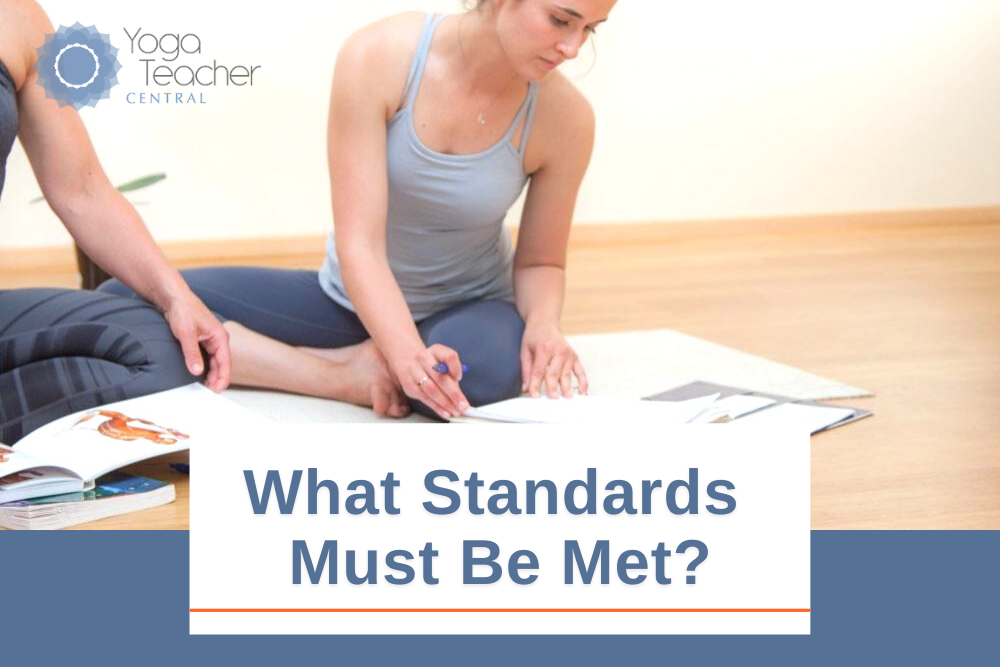
As a result of no widely accepted standards and a commercialization of teacher trainings, we see a glut of unprepared teachers — some incapable of transmitting yoga teachings with skill and wisdom. This has prompted many yoga professionals to search for remedies to uplift the field as a whole. As part of this effort, we offer the following:
Scroll down for more detail on these points.

Since launching its registry in 1999, Yoga Alliance has never assessed or certified competency of teachers or trainers (which they call “schools”).
Yoga Alliance recognizes teachers and trainers based on two things: paperwork and payment of fees. In return, teachers and trainers are given “registry marks.”
YA “Approved” Studio Churning Out Teachers So Poorly Prepared That the Studio Looks Elsewhere to Hire Teachers
A few months ago a student who had gone through my teacher training called me looking for advice for an upcoming teaching “audition.” She told me of a Craigslist ad that a local studio had posted looking for qualified teachers. You might wonder why I thought it was odd to learn about this ad. It’s because this studio offers their own 200, 300 and 500-hour training programs and regularly churns out teachers like gum balls out of a machine. The point? Their program is so bad that they won’t even hire their own trainees! But the studio trainers are YA-accredited so they keep bringing in trainees who don’t know any better, taking their money and running trainings with a sub-par curriculum. This is a big and reputable studio – I kid you not. I’ve got lots of stories that would make you go… huh, really? – Teacher Trainer
As of October 12, 2019, Yoga Alliance had a page on their website entitled “Spirit of the Standards July 2016” (as shown in the screenshot below). Please read it for yourself:
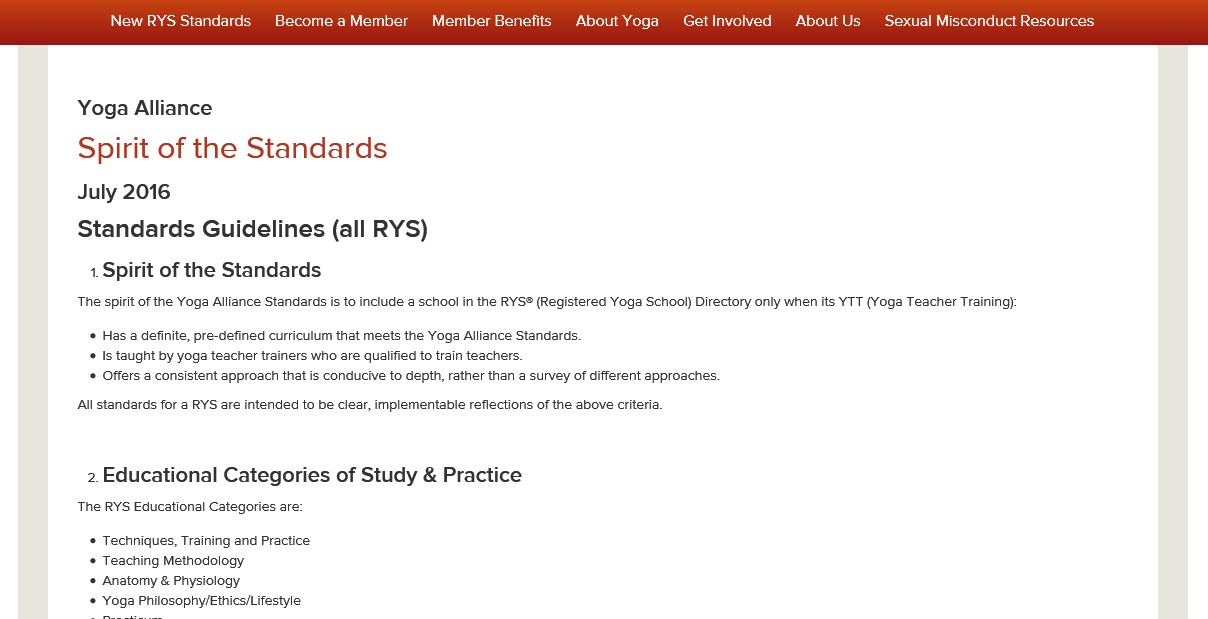
Those “Standards Guidelines” lack specificity and are strangely and obscurely written.
The new requirements that took effect February 2020 require trainers to assess competency — of unspecified standards — on more than 50 topics while offering insignificant resources to support the new requirements.
Rather, Yoga Alliance requires trainers to submit an application and, as of February 2020, additional documentation that attests to the fact that they, the trainers, will be assessing competency.
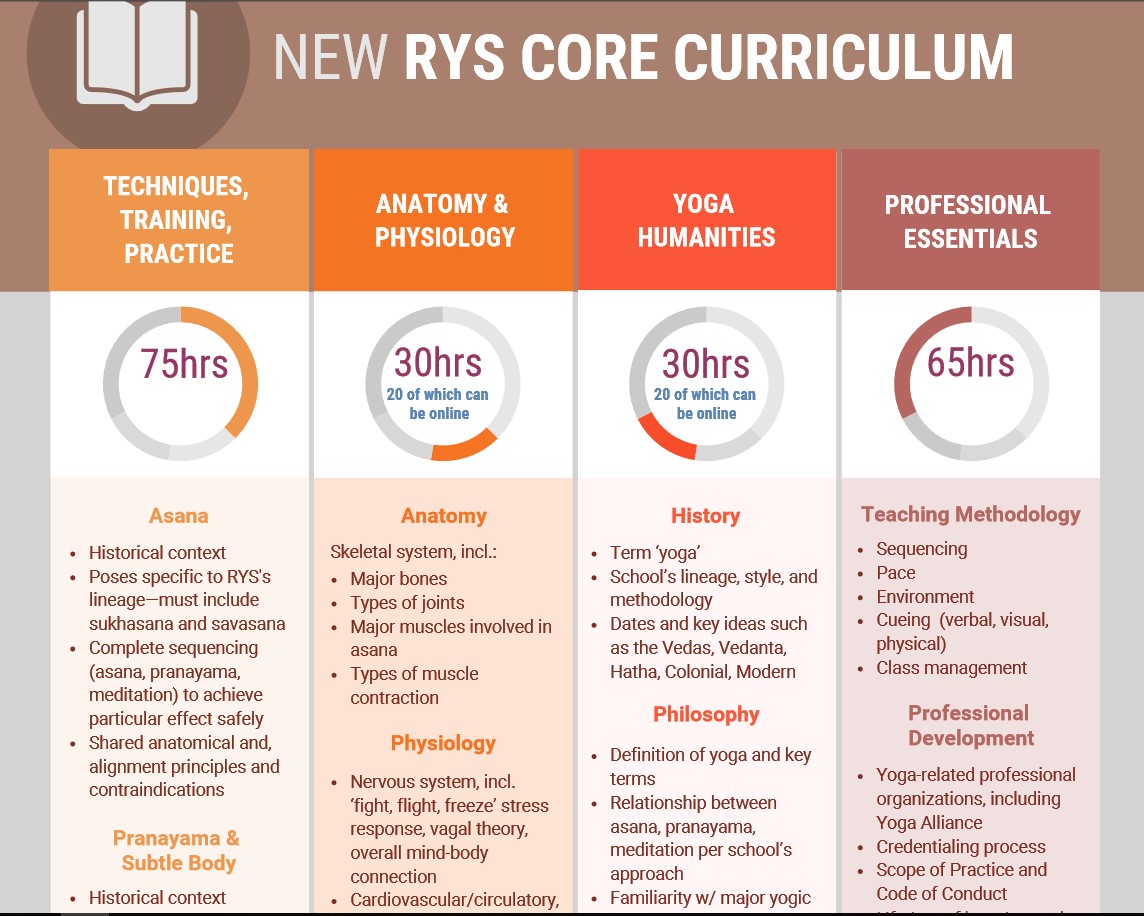
This page you’re on (and the related series of pages regarding Yoga Alliance and alternatives) was originally published in 2019. The image above is a screenshot from the Yoga Alliance website at that time.
In 2023, we received an email from one of our trainer members and she happened to attach some images from YA, including this:
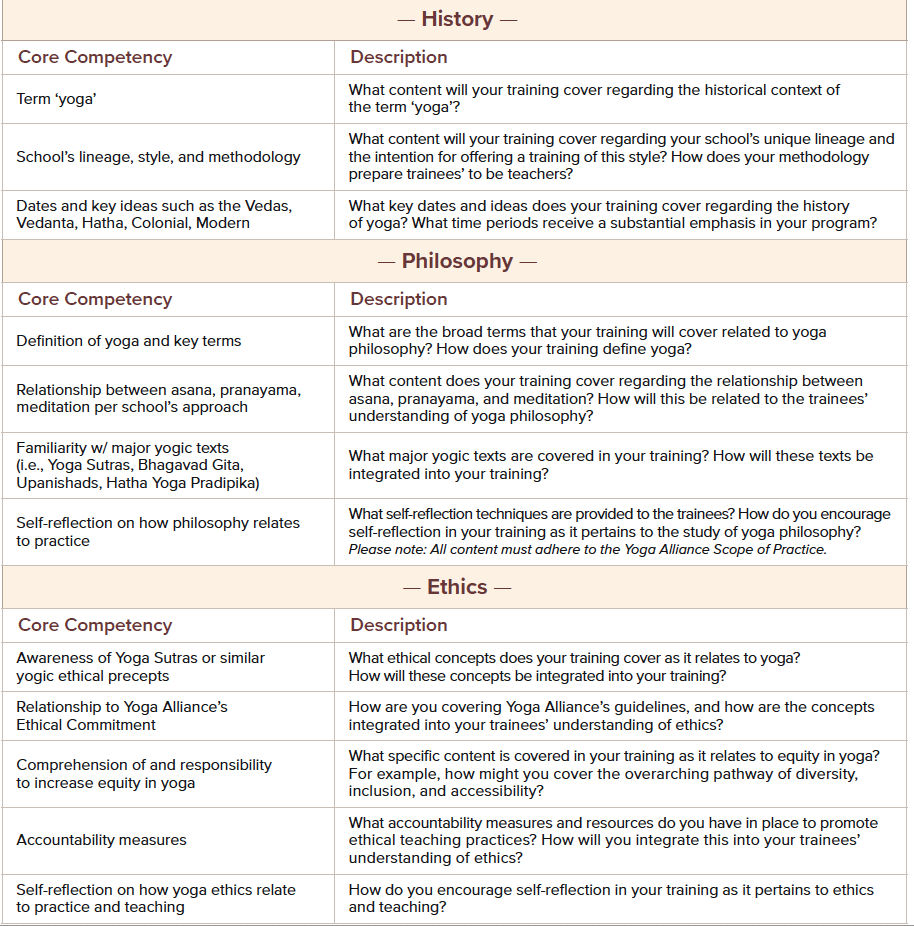
This new addition is certainly something one would expect from a centralized registration body. To use actual sentences to describe their requirements is more useful than to only give phrases alluding to general topics.
While we don’t know for sure, it’s reasonable to presume that this update was made because of the observations published here.
Still, we note that the descriptions are in the form of questions, which means the requirement is for trainers to share information related to those subjects. That has value (to ensure trainers have considered an appropriate scope of coverage in their curriculum), but questions are still not “standards.” We are not suggesting that YA should endeavor to set standards as they have not demonstrated the ability to do so, nor do they represent a broad scope of qualified teacher trainers. We simply want to be clear that these questions signify a requirement to write things down on an application, which is a bureaucratic standard, not a competency standard. At the risk of being exceedingly repetitive, this is not to imply that YA should endeavor to develop or uphold competency standards, but rather to be utterly clear that YA is not a vanguard for teaching competency and to think they are prevents finding real ways to improve teaching competency.
Trainer & Trainee Due Diligence
My feeling is that it is the responsibility of the TRAINER and their respective YTT offering to insure benchmarks are in place and the responsibility of the prospective TRAINEE to do their due diligence. I know many trainers who have only taught yoga for a few years who begin a YTT, pay their dues to YA and boom… they’re off and running and counting the money in the bank. In these cases, they give substandard trainings and then disappear a few years later, not having established credibility in the field. My priority is creating a safe, quality standalone YTT without the approval of anyone except my own board and governing body, which in my case is with the endorsement and teaching of Registered Nurses, Advanced Practice Nurses, Doctorate Nurses and other recognized expert medical professionals. – Annette Tersigni, The Yoga Nurse link
There are many highly recognized, influential teachers who are not registered with Yoga Alliance. This does not imply anything about the teachers registered with YA but instead demonstrates that registration is not required nor does it directly correlate with skill, experience or influence.
The following teachers, for example, were not on the registry as of the date noted. The information below was gathered using the teacher search function on the Yoga Alliance website which returned results as in this screenshot from Oct 3, 2019:
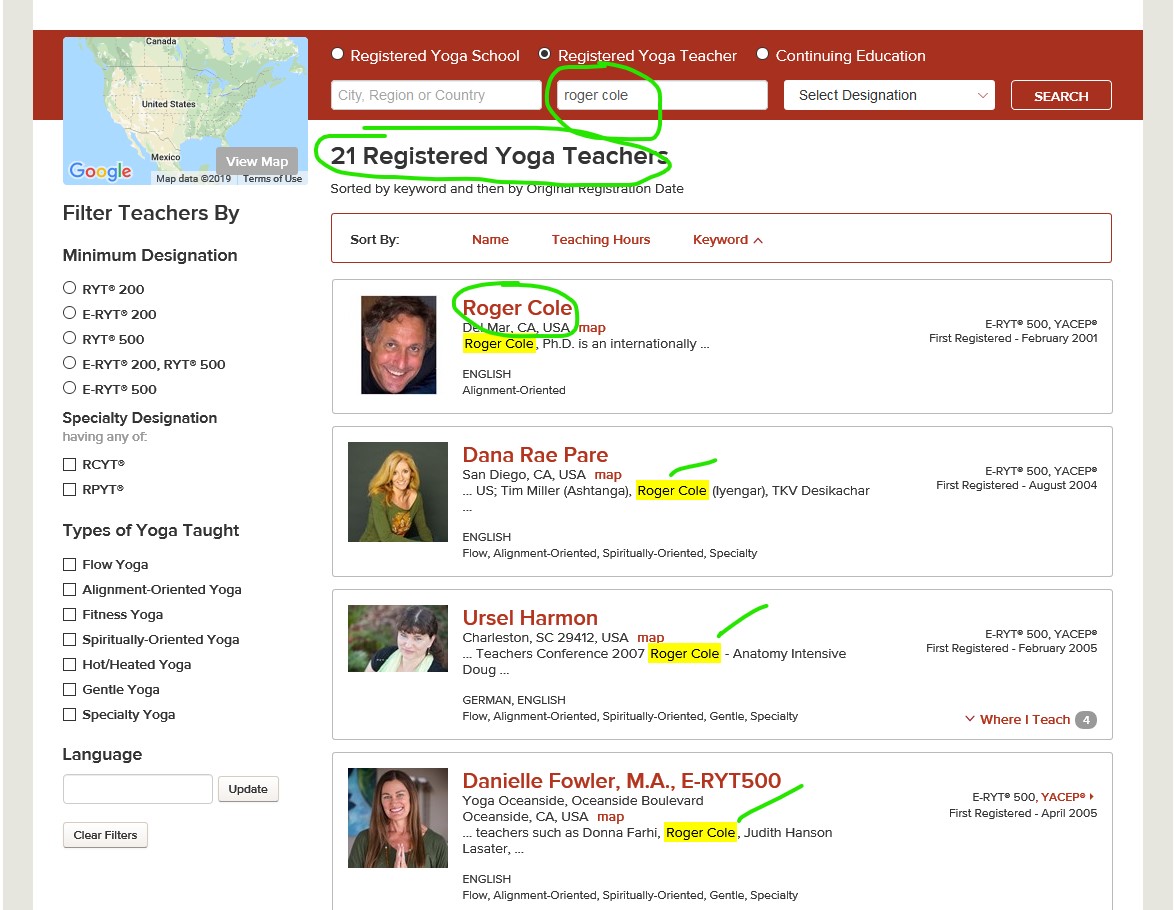
Sampling of Influential Teachers NOT Registered with Yoga Alliance
Of course, it’s not only widely-known teachers who decline to register with Yoga Alliance. Here are some examples of teachers replying to a Facebook post to say that they are not registered with YA either.
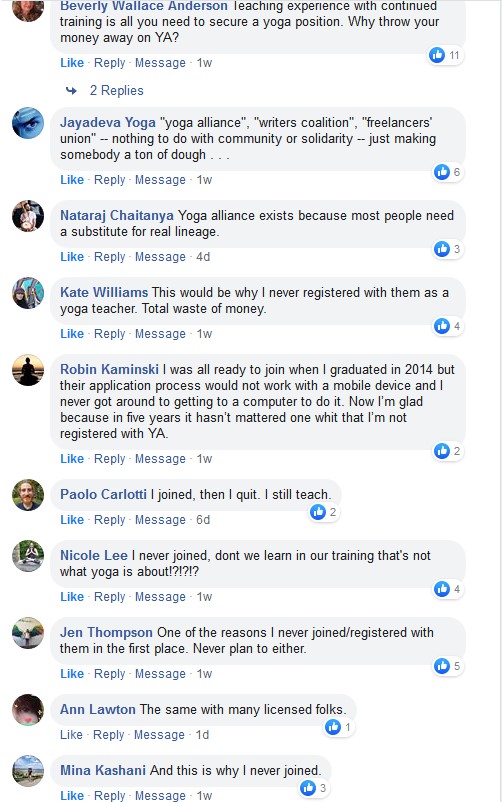

Yoga Alliance does not provide significant resources to support increasing competency and instead burdens trainers with bureaucracy and fees, including an unusually high application fee.
As of February 2020, Yoga Alliance began charging trainers with responsibility for teacher competency (of unspecified standards) in more than 50 topics. And yet Yoga Alliance offers insignificant resources to support this process.
Standards vs Bureaucracy
Yoga Alliance drug out my application for nearly a year. They didn’t understand the quality or delivery process of my training and in the end I dumbed it down to the point it no longer resembled my training at all and simply told them what they wanted to hear. – Sarcha Thurston link
Since publishing Registration, Certification, Accreditation: Why You Don’t Need to Pay the Yoga Alliance Fees, emails from teachers and trainers came flooding in, expressing support and offering to volunteer to hold a transparent discussion about alternatives to Yoga Alliance. (A 39-member board was formed and was in effect in 2019. See here for their discussion topics and findings.)
Most of the teachers and trainers who have written in have expressed frustration with various issues and have given their support for more sharing of information. But there have also been some stories of experiences with Yoga Alliance that are describing a level of harm that seemed important to be brought to light. Below are some of those statements. Please write in if you have anything to share.

Yoga Alliance took almost a year to approve an RYS application submitted by a highly qualified teacher who had experience training with an elite teacher (Gregor Maehle). The same training program, submitted to Yoga Australia, was accepted immediately. Years prior, YA required this experienced teacher trainer to go through a basic training with a YA-registered school despite already training teachers for Maehle.
Yoga Australia has significantly higher standards than Yoga Alliance and usually processes most applications in around six months, after a close supportive process with the applicant. I submitted a training application to both Yoga Australia and Yoga Alliance. Yoga Australia approved the application within 48 hours without revision. Yoga Alliance drug out my application for nearly a year. They didn’t understand the quality or delivery process of my training and in the end, I dumbed it down to the point it no longer resembled my training at all and simply told them what they wanted to hear.
I am also a teacher who many years prior had to redo basic training to get registered with Yoga Alliance despite already training teachers for Gregor Maehle.
Yoga Alliance is structured to endorse training that maximises membership to the organisation rather than support robust standards in training and teaching. This, in my opinion, makes it purely a commercial enterprise entirely of zero value to teachers or trainers.
The organisation itself is mostly responsible for leading to a worldwide degradation of training standards in efforts to widen the potential membership net by allowing registration of 200-hour training that is delivered over very short time frames — as short as a few weeks. As a yoga school owner, I would never employ someone who trained for only a few weeks. I think we would all agree that this is grossly inadequate, even for basic training. I can’t see them ever changing this as it would severely limit their membership pool.
Having achieved a widening of the membership net of the organisation, Yoga Alliance are moving towards monopolising power as demonstrated in their making the training registration process deliberately rigid, unnecessarily long and complicated, and funneled.
By funneled, I mean that they only recognise the YA pathway – even though there are other organisations that do the same thing (and much better). If you don’t join the system at the bottom end, you are forever kept out of the system. I’d like to work to keep options open and to compare the standards that various organisations support.

Experienced trainers of high integrity have “witnessed people who could not teach a sun salutation or have even basic understandings of the principles of yogic philosophy, physiology or psychology that had been registered with YA.” Despite advanced training with elite teachers and philosophers, trainers will be required to undertake further training with YA “approved” schools.
My partner and I operate a small yoga studio in the suburbs of Detroit called House of Yoga. We have had difficulties with Yoga Alliance and essentially understand it to be a money making venture wrongly perceived to be an organization that upholds standards.
We also understand that virtually anyone can become a “certified yoga teacher” [the common understanding] through Yoga Alliance as they have no way of verifying what training an individual really has.
We both believe in high ethical and moral practices and believe in teaching people how to be really good, sincere teachers. We have witnessed people who could not teach a sun salutation or have even basic understandings of the principles of yogic philosophy, physiology or psychology that had been certified by YA.
We’ve thought about doing an experiment where we register our cat “Buddha” as a yoga teacher haha. If the fee was paid, there’s no reason to expect there would be a problem.
We have both been practicing and teaching for nearly 20 years and have led many, many teacher training programs. We are having difficulty with the new regulations by the YA that in order to continue to provide trainings, we will soon have to have an RYT-500. We both have had much training from the best Hatha Yoga teachers and spiritual teachers out there today…. real teachers such as Mark Whitwell and yogic scholars such as Russill Paul, among many others.
But the YA process doesn’t take into account such quality and requires that we train with their “approved” schools.

Yoga Alliance did not provide any support or relief to a YA registered teacher who reported trainers who had misrepresented themselves as a registered school. YA did not acknowledge the training the teacher received and yet allowed the trainers who lied about their status to later register with no consequences. The teacher was afforded no relief for being victimized by the lie or for reporting the violation. YA did not warn other teachers of the ethical violation.
Update, January 2020: The yoga teacher who reported this event notified us that after this report was published here, Yoga Alliance remedied the situation. (Because the situation has been remedied, we have removed all identifying information from the statement below.) What great news that the teacher received justice. This is also an indication that if you have been harmed and choose to report the truth of what happened to you that you may be able to obtain restitution.
I am currently registered with Yoga Alliance as an E-RYT 200.
I agree that the standards don’t represent teacher quality and that Yoga Alliance provides no real oversight of the standards.
I wanted to share with you a personal experience that showed me that Yoga Alliance also provides no ethical oversight of their teachers and schools, despite their bragging about how they protect teachers and the Yoga community.
I enrolled in a 300-hour teacher training program run by two teachers who were E-RYT 500. The enrollment material and program website advertised that it was a Yoga Alliance approved RYS-300. Upon finishing the program, I found out it was not.
I filed a grievance with Yoga Alliance, because mis-representing a program as an RYS is, of course, a violation of the Yoga Alliance rules. Essentially the two trainers running the program lied and took a ton of money under false pretenses, which is stealing. The Yoga Alliance code of conduct requires all teachers and trainers to abide by the Yamas, which prohibit lying and stealing.
In response to my grievance, Yoga Alliance acknowledged that the school and trainers lied. But rather than doing anything to help me, they told me I needed to enroll in a new program and start all over again.!
And, instead of punishing the school and trainers, they let them pay the registration fee to become an RYS-300.
Yoga Alliance punished the victim and rewarded rule breakers who lied and stole.
I have copies of the 300 hour program’s letter of engagement and printouts about the program from their website. And I have the grievance correspondence with Yoga Alliance including their reply.
If Yoga Alliance had helped me, the victim, all they would have received is goodwill. But by helping the school they got 600 bucks and annual renewal money.
Thank you for your interest.
The following information came in on our feedback form in October 2019, without contact information. The inflexibility reported here makes no sense in light of the lack of true standards enforcement. A reasonable deduction for such a “rule” is that it’s simply for bureaucratic and financial reasons and is limiting as opposed to supporting yoga teaching quality.
Presumably, the addition of “approved” online training options in 2020 made this a moot point, but we include it here to document evidence of the history of the impact of YA on the teaching field.
I’m a 200 RYT and write to Yoga Alliance about their requirements of having to use the same training provider to upgrade to RYT500. This might not be a problem for some people but for expats, trailing spouses, we move cities, countries, continents at short notice. 7 countries in 17 years and I’ don’t consider myself an experienced expat! Hence I completed my 200 hours in Geneva and would need to use the same training provider for my additional 300 hours. If I start my training in Geneva, Switzerland and do 100 hours then move to Sydney Australia, I would have to travel back to Geneva to complete my additional 200 hours. That’s a long way, a lot of time, very expensive, impractical and unnecessary IF Yoga Alliance allowed further training to be completed with different training providers who all adhered to the same competencies, training requirements. I was told I could not do this as: “Excellent question! The training must be done at a single RYS. This will ensure consistency in teaching and practices.” I therefore cannot risk starting my additional training to become a 500RYT in case we move. Very disappointing and inflexible response showing little understanding on behalf of Yoga Alliance. I welcome your feedback as others will have a similar issue with the inflexible system and lack of understanding of the problem facing teachers who move homes due to their work/lifestyle.
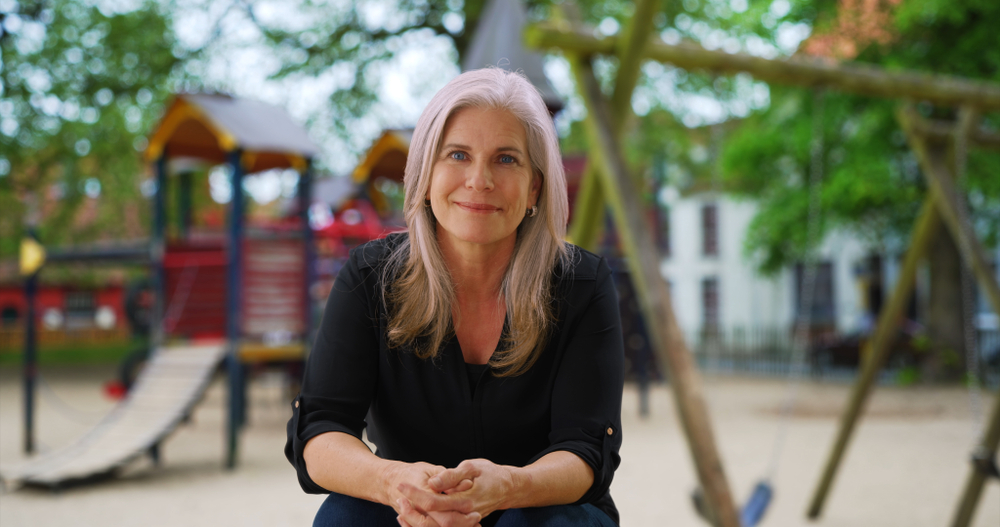
The common misperceptions described above prompt some considerations:
Each teacher and trainer may choose their own approach to this subject. Yoga Teacher Central takes the position that: